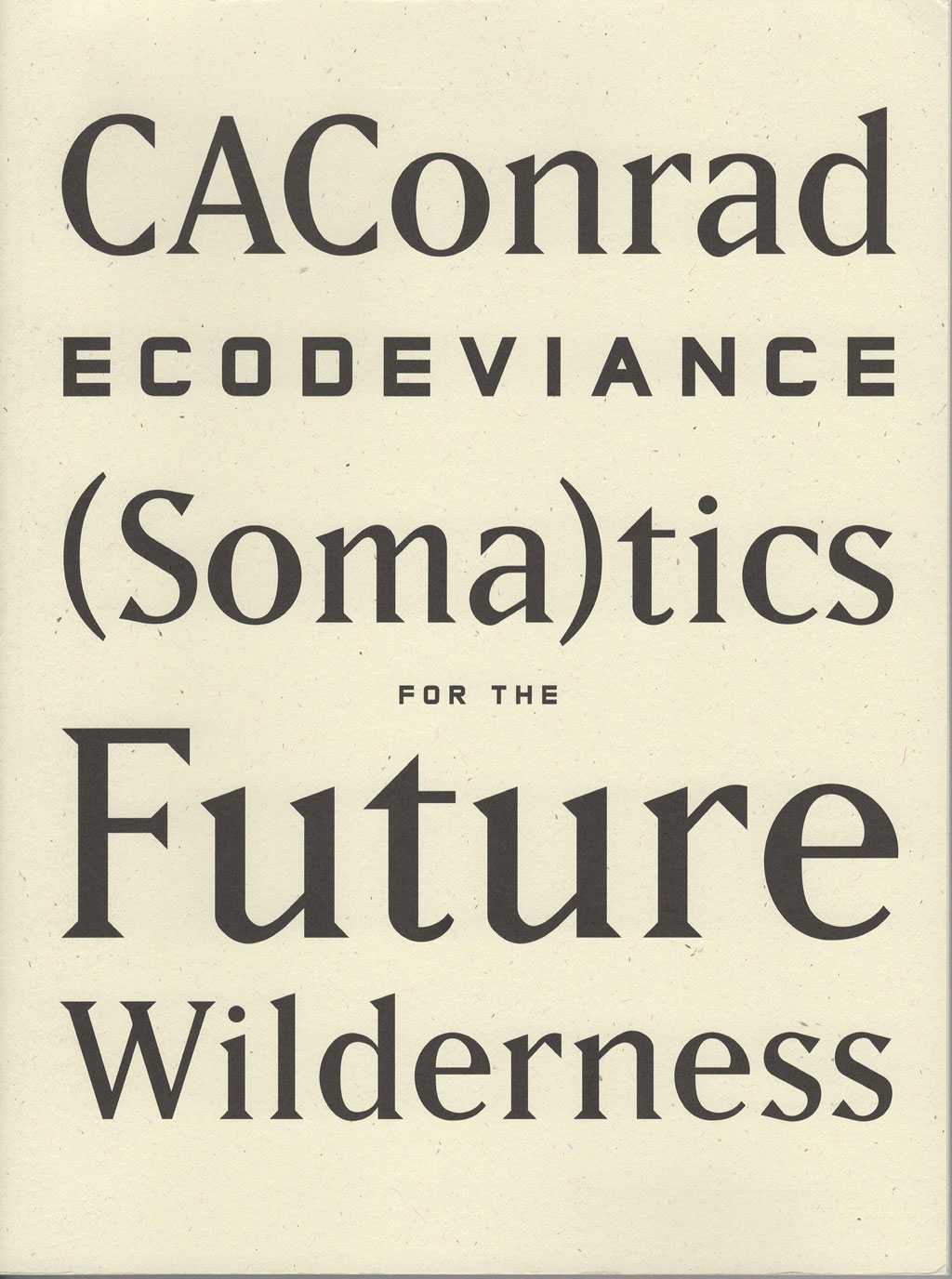Ecodeviance
I usually start a book review with some information on the author, including past publications, academic affiliations and other markers of importance that might help the reader slot the work into whatever framework he or she has for deciding what books are worth reading. While CAConrad definitely has the required pedigree, detailing it seems counter to the ethos of the book’s rejection of received knowledge in favor of lived experience.
I usually start a book review with some information on the author, including past publications, academic affiliations and other markers of importance that might help the reader slot the work into whatever framework he or she has for deciding what books are worth reading. While CAConrad definitely has the required pedigree, detailing it seems counter to the ethos of the book’s rejection of received knowledge in favor of lived experience.
So let me start over.
Conrad’s Ecodeviance begins with a brief introduction describing his impulse to poetry and urbanity as a way to escape the factory—the monotony of industrial work and the crush it lays on the artistic process. However, after years of practice, the factory caught up with him. The exercises or “(Soma)tic Poetry Rituals” described in this book and the poems that follow are a call to presence, a rededication to the poet’s task of being in the moment, of clearly recording sensation for the purposes of transformation.
This sense of presence demands connection to the natural world and the creatures that inhabit it. Conrad writes from vastness, from retreats such as Banff and UCross. Away from home, he allows himself to be startled from habituated responses:
Mountain lion paw prints in fresh snow, grizzly bear scat, elk, mink a pack of beautiful coyotes, and the magnificent magpies were outside my studio in the forest. It would be easy to write nature poems, documentary poems, straight up narrative poems, but my notes were for poems found in the greasy film along the engines of out planetary machine coughing, devouring, running in terror [. . .] Banff was scraping me clean each day.
The prompts and the process seem quiet, but the poems they produce are not. By filtering the surrounding noise, Conrad can zero in on the most eldritch of cries.
The process also demands connection with other people. Each exercise is dedicated to and inspired by the work of others, sending the practicing poet headlong into the word of other people “Envision saying HELLO, tugging their sleeve. TUG IT with your mind. . .”
The language in Conrad’s poems is surprising in its rawness. While grounded in the specific and the material, the poems touch on Big, Important Issues. The poems themselves, however, stay firmly grounded in this world, in language that actual people use, and sometimes in the bathroom:
when public
toilet seat is
warm from
previous ass do you
become comforted
or leap off in fear?
[ . . . ]
fecal poetry ranges from
shocking to absurd
this is neither
this is pragmatic
This groundedness gives further weight to the ideas Conrad dredges up. In some cases he manages to be political with a certain lightness that would be palatable to most polite circles. In “Full Moon Hawk Application,” Conrad says “Here we are catching up with ancestral wisdom, finally.” Presence itself, the book’s premise, underpinning, is a deviant act as the collection’s title implies. As much as we like to talk about the health benefits of unplugging and mindfulness, fully engaging with another person or plant or project, face-to-face and without distraction terrifies and seems un-American. Shouldn’t I turn on Hulu so I can half-ass my way through this book review? Should I not be consuming media at all times so that nothing can touch me, no noise can be loud enough to penetrate my web of purchase and half-felt, ever-diminishing pleasures?
Later, Conrad is more explicit in his condemnation: “clawing our way through untold reserves of natural resources, killing all life that gets in the way.”
anyone with
sense wants
madness to end wants
Canada to invade the
United States of
the Americas
bring us to our knees
dissolve our military
imprison our leaders
distribute our wealth
insist we live in peace
There is a certain sense of trauma, of overwhelm that builds as the book progresses. But just as a depressed person feels a sense of hope at feeling anything, even anger or sadness, the light CAConrad shines on the horror of our disconnection contains within it the seed of hope; we will hit bottom and rebound:
I will stay and
watch our
phoenix rise
I believe
in us





